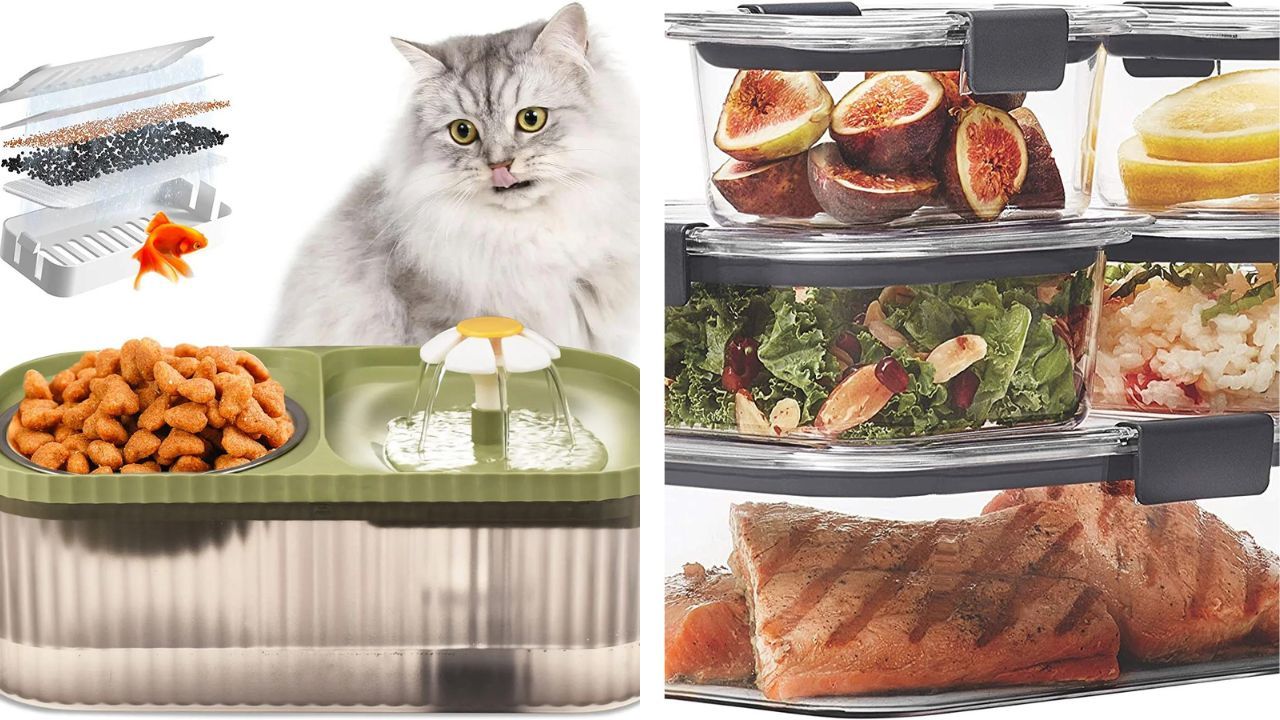The Purr-fect Guide to Feeding Your Cat Human Foods: Keep Your Kitty and Yourself Safe!
Read this blog to see which human foods are safe for your cat especially when your cat is begging for it!

Have you ever been curious about what human food is safe for cats to eat? The answer is "yes". As a cat owner, it's important to understand what foods are healthy and safe for your beloved pet. When feeding your furry friend human food, always be cautious when selecting items from the grocery store shelf or the kitchen countertop.
Remember that not all human food is safe and suitable for your cat's dietary needs. Some may contain ingredients such as sugar and salt which can be dangerous when consumed over time by felines whose bodies lack the ability to process these substances properly! Additionally, always consult with your vet before giving any new item from the pantry. In this blog post, we'll discuss the basics of giving your cat human food while ensuring their safety.
The Basics of Feeding Your Cat Human Food
When feeding your cat human food, it's important to remember that cats have different nutritional needs than humans do. This means that not all human food is suitable for cats to eat. For example, some human foods may contain too much sugar or fat which can be dangerous for cats in the long run. Additionally, certain ingredients found in many processed foods such as onions and garlic can be toxic and should never be given to cats. That being said, there are some human foods that you can safely give your cat on occasion as a treat! Here’s a list of some safe options:
Cooked Eggs (boiled or scrambled) - Eggs are an excellent source of protein and other essential vitamins and minerals for your cat. Avoid feeding raw eggs as they may contain harmful bacteria such as salmonella which could make your cat very ill.
Plain Cooked Chicken - Chicken is full of protein and other nutrients that cats need in their diet so it makes a great occasional treat! Make sure the chicken isn't seasoned with any spices or herbs because these can be toxic to cats if ingested in large quantities.
Canned Tuna - Canned tuna is another excellent source of protein for cats but make sure it’s plain with no added sauces or seasonings as these could be harmful to your cat's delicate digestive systems if ingested too often. Tuna also contains mercury so it should only be given once in a while as an occasional treat instead of a meal replacement option.
Plain Yogurt - Yogurt can provide beneficial probiotics for your furry friend's digestion, however make sure it’s plain with no added sugar or artificial sweeteners as these can both be toxic to cats if ingested too often over time. Also avoid flavored yogurts as these usually contain additives that aren't good for your pet either!
Fruits & Veggies – Fruits and veggies are packed with vitamins and minerals which can help keep your cat healthy and active. Most cats enjoy crunchy vegetables like carrots and celery, but you should avoid giving them onions, garlic or chives as these can be toxic to cats in large amounts. Fruits like mangoes are also great snacks for cats but make sure they are ripe before offering them as unripe fruits.
Cheese - Cats love cheese! But it is important to remember that cheese should only be given in moderation as it is high in fat and calories; and should not be given if your cat is lactose intolerant. A good rule of thumb is to offer your cat a small amount (no more than a teaspoon) of cheese once or twice a week. Avoid giving your cat processed cheeses such as Velveeta or cream cheese as they contain artificial ingredients that could potentially harm your cat.
Fish - Fish is an excellent source of protein for cats, so it is no surprise that most cats absolutely love it. However, not all fish are safe for cats to eat due to potential parasites or toxins found in some types of fish. It is best to stick with cooked whitefish or tuna for your kitty (make sure there aren't any bones!). Salmon, trout and oysters contain high levels of mercury which can be harmful to cats if consumed in large quantities over time.
Other Foods That Cats Can Eat Are:
The apple flesh (not seeds, stems, or leaves); peeled banana; blueberries and strawberries (that have been washed and stems removed); seedless watermelon; and completely baked bread.
It’s important to also keep in mind that cats need a lot of protein in their diets. Many human foods are low in protein content and don't provide enough nutrition for cats. It's best to feed your cat high-quality wet or dry kitten food that has been specifically formulated for them. Click the button below to see which cat foods that we have reviewed on Amazon that can keep your cat healthy!

